In this comprehensive post, we'll go over;
The Top 10 Causes of Water Damage
You'll learn;
- Signs of water damage,
- Prevention Tips
So if you've ever asked yourself any of these questions, you'll love this post!
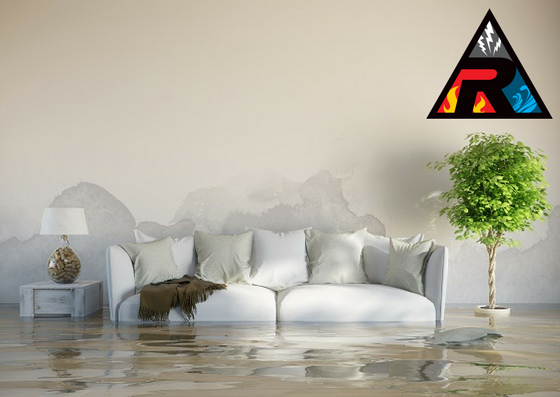
Rock Emergency has been a leader in the Water Damage Restoration industry for years. Our team has completed the IICRC, HAZWOPER 40, and Dewald Academy of Drying certifications. Our professionals can handle water damage no matter the cause.
Keep reading about the top 10 common causes of water damage we remediated in the past.
Severe Weather
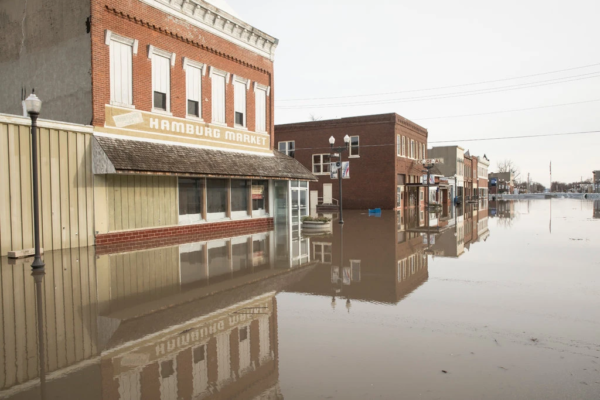
Strong winds and heavy rain can damage your roof, causing rainwater to enter your home or business. Severe weather can sometimes lead to flash flooding, especially in flood-prone areas. Heavy rain and extreme snow can also cause water damage. During these heavy rain or snow storms, the public drainage systems can often get overloaded, causing flooding in yards, streets, and basements.
Rainwater sometimes seeps through doors and windows and collects in basements. Flooding occurs when there is a lot of rainfall in a short time. During heavy rains, rivers can overflow and cause flooding.
Snow and ice-melting water can also pile up around foundations, leading to flooding and damage to carpets, drywall, and insulation.
Clogged Gutters
Gutters were designed to allow rainwater to flow away from your home. Gutters can often get blocked by leaves, branches, ice, and other debris, which prevents rainwater from flowing correctly away from the property. When the gutters are clogged, it causes water damage to the ceiling, walls, and floors, as well as the basement if water collects there.
Leaking Pipes
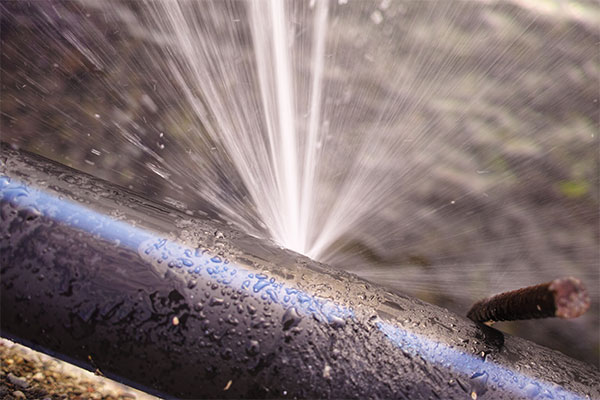
Pipes that leak can cause water damage to the surrounding area. This can be especially bad if the leak is in a wall, as it can damage the entire wall and lead to mold growth. A leak in a plumbing supply line or drainage pipe is even worse.
Pipes can freeze and rupture in just a few hours, causing extensive water damage to walls, ceilings, floors, carpets, furniture, and other possessions. A small crack in a water pipe can leak enough excess water to flood your home. Burst pipes are one of the worst things that could happen to your home, often causing thousands of dollars in damage.
Appliances
Washing Machine
If your washing machine has rubber or PVC supply lines, they can quickly wear out and rupture, which would cause your entire laundry room to flood in minutes if you don’t shut off the water source in time. To avoid this potential mess, replace old lines with braided stainless steel.
HVAC
Your air conditioning unit produces condensation when it is running. The water from the condensation then drips from the unit into a drain pan and out of your home through a drain line. However, if the drain pan is damaged or the condensate drain line is clogged, the water will leak into your home, damaging the floor and walls and making your insulation soggy.
Malfunctioning Sprinkler Systems
A sprinkler system can save your property and even your life in the event of a fire. However, there have been incidents where older sprinkler systems have turned themselves on without indicating a fire.
This can cause significant water damage, especially if electronic appliances are present. Additionally, if parts of the sprinkler system are exposed to freezing temperatures, the pipes and fitting could burst. Cold-weather sprinkler routines can help avoid water damage from ruptured pipes.
Leaking Water Heater
If you have an old water heater, it is likely to leak eventually. This can be caused by poor maintenance or installation or too much pressure in the tank. If the leak is bad, it can flood your entire basement.
Even a small amount of water can cause water damage to your floors, sub-floors, and walls. In extreme cases, a catastrophic water heater failure can lead to a significant flood, resulting in expensive repairs and damaged personal property.
Running or Dripping Toilets or Faucets
A running toilet will do more than make an annoying noise; if left alone long enough, a lot of water will flow, increasing water bills, and there is a greater chance of overflowing and causing water damage. When a faucet is dripping, you’d think it would just go down the drain.
However, if the drain is clogged or covered, the water may eventually fill the sink, causing overflow and water damage. It is essential to keep all plumbing systems working and running correctly to help prevent backups, clogs, and constant running/dripping.
Water Overflow
Water damage can also be caused by water overflow from forgetting to turn off sinks or faucets. This can cause damage to floors and carpets and lead to mold growth inside the house. If you can't turn off the water, you can shut off the main water supply until the problem is fixed.
Garbage Disposal
Garbage disposals will eventually wear out from being used. If the disposal becomes the problem, you might find it leaking under your sink. The accumulated water will be dirty and likely mixed with food and garbage.
The leak might be small, making it go unnoticed for some time. Often, the disposal will need to be replaced.
Sump Pump
Water in the basement can be a disaster if the sump pump stops working, whether it's due to heavy rain or an appliance failure. Water damage in the basement is quite common, but it's certainly not convenient.
Blocked Drains
The drains in your kitchen or bathroom sink and bathtub can clog up for various reasons, such as hair, grease buildup, and other foreign objects that are not addressed immediately. Clogged drains can eventually cause undue pressure in the pipe, which then causes it to burst or leak.
Septic Tanks & Sewer Lines
Backed-up sewers can cause extensive damage to a home and pose a severe health hazard. Blockages are often the cause of sewers backing up, and these can be caused by tree roots growing into the sewer lines. Septic tanks can also overflow during heavy rains, leading to sewage backup and flooding. Always have certified professionals take care of any sewage backup or flooding.
Roof Leaks
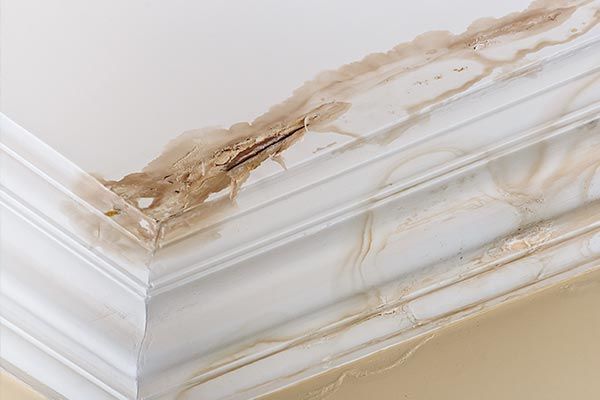
Roof leaks are one of the leading causes of water damage, often due to lack of maintenance. Roofs need to be inspected and repaired regularly, but many people avoid doing this. Always check your roof periodically and call for help if you see signs of leakage.
Roof leaks are responsible for an estimated 15% of commercial water damage claims, so it's crucial to prevent them with regular inspections and maintenance. If you have a roof leak, repair it immediately, remove any snow or ice, and ensure water can drain properly.
Vacant Homes or Buildings
When homes or buildings are left empty, they run the risk of having unknown water damage. This often occurs as pipes get older and start to leak. Additionally, pipes that freeze during the winter may burst, causing gallons of water to spill before it is noticed. If a building will be vacant for an extended amount of time, it is best to install sensors that will alert you to any issues.
Water Tanks
Water tanks are used for both water supply and fire protection. They should be regularly inspected, and an ultrasound will ensure the integrity of a metal tank.
Water Mains
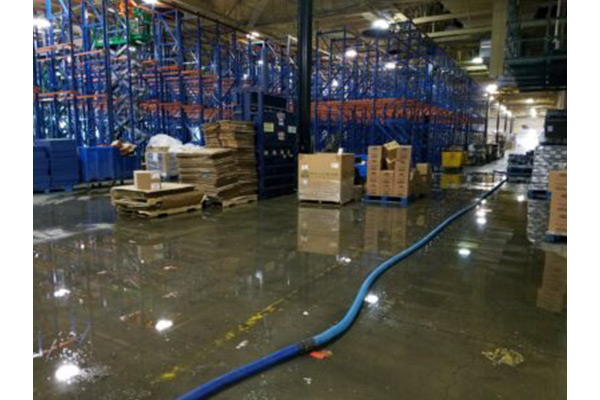
Several factors may contribute to water supply line breaks, including extreme weather, construction activity, and soil erosion. These incidents make up a small percentage of water damage claims, but they can be severe. If possible, consider replacing water mains over 60 years old or made of iron, which is more susceptible to breakage.
If you or someone you know is experiencing one of the top 10 common causes of water damage, give Rock Emergency a call right away. We can fix any damage caused by water. Don’t wait until the damage gets worse. Our professional water damage restoration specialists are on call 24/7 for water emergencies.
Share this Post
